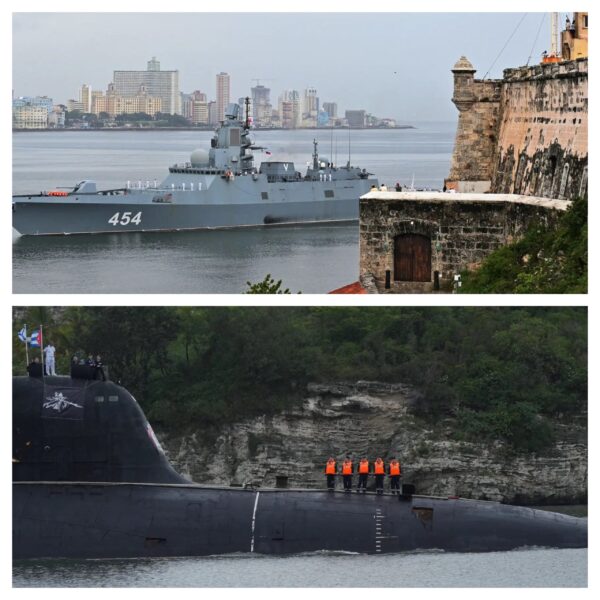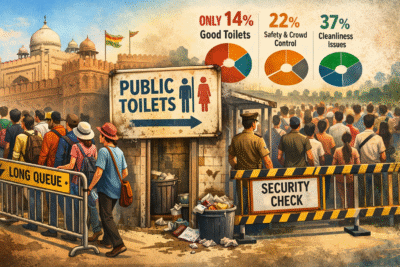
Russia and the US are facing one another near Cuba
Recent geopolitical developments have sparked concerns of a potential flashback to the tense days of the 1962 Cuban Missile Crisis between Russia and the United States. Against the backdrop of escalating tensions, Russia’s decision to send a warship to Cuba and the US’s mobilisation of submarines near Guantanamo Bay have drawn parallels to the historical confrontation that brought the world to the brink of nuclear conflict more than six decades ago.
Echoes of History
- In 1962, the world held its breath as the US and the Soviet Union engaged in a high-stakes standoff over Soviet ballistic missiles deployed in Cuba, within striking distance of the American mainland.
- This episode marked the closest the world has ever come to nuclear war, with tensions easing only after intense negotiations and Soviet withdrawal of missiles from Cuba.
Current Developments
- Fast forward to the present day, and tensions between Russia and the US are once again being scrutinised on a global scale.
- Russia’s decision to dispatch a warship to Cuba, reportedly for naval exercises and port visits, has been met with apprehension in Washington.
- Meanwhile, the US response of mobilising submarines near Guantanamo Bay, historically a contentious area between the two nations, signals a readiness to counter perceived threats.
Geopolitical Chess
- At the heart of these developments lies a complex game of geopolitical chess, where each move is scrutinised for its strategic implications.
- Russia’s actions in Cuba are seen as a strategic assertion amidst heightened tensions with the West over issues ranging from Ukraine to NATO expansion.
- The deployment of US submarines near Guantanamo Bay underscores Washington’s commitment to maintaining regional security and protecting its interests in the Western Hemisphere.
Nuclear Shadow
- The spectre of nuclear capabilities looms large over any Russia-US confrontation, as both nations possess formidable nuclear arsenals.
- While direct military confrontation may seem unlikely, the strategic posturing and military manoeuvres evoke memories of Cold War brinkmanship, where miscalculations could have catastrophic consequences.
Diplomatic Channels
- Amidst the military posturing, diplomatic channels remain crucial in averting a full-blown crisis. Dialogue and negotiations between Russia and the US, supported by international mediation if necessary, offer a pathway to de-escalation and conflict resolution.
- Efforts to establish communication channels and transparency in military activities can mitigate misunderstandings and reduce the risk of unintended escalation.
Global Concerns
- The implications of renewed tensions between Russia and the US extend beyond bilateral relations to global stability.
- In an interconnected world, regional conflicts have the potential to escalate into broader crises, impacting international trade, energy markets, and global security architectures.
- The international community, including major powers and regional stakeholders, has a vested interest in promoting dialogue and upholding principles of peaceful coexistence.
Looking Ahead
- As the world watches developments unfold in the shadow of historical precedent, the importance of diplomacy, restraint, and adherence to international norms cannot be overstated.
- The echoes of the 1962 Cuban Missile Crisis serve as a stark reminder of the dangers of brinkmanship and the imperative of diplomatic resolution.
- In an era defined by complex challenges and interdependent relationships, collective efforts towards de-escalation and conflict prevention are essential for safeguarding global peace and security.
While parallels can be drawn between current events and the 1962 Cuban Missile Crisis, the geopolitical landscape today is vastly different, shaped by new actors, technologies, and global interdependencies. The path forward lies in cautious diplomacy, transparent communication, and a commitment to resolving differences through peaceful means. The world watches closely as Russia and the US navigate these turbulent waters, hoping that history does not repeat itself in a manner that threatens international peace and stability.



